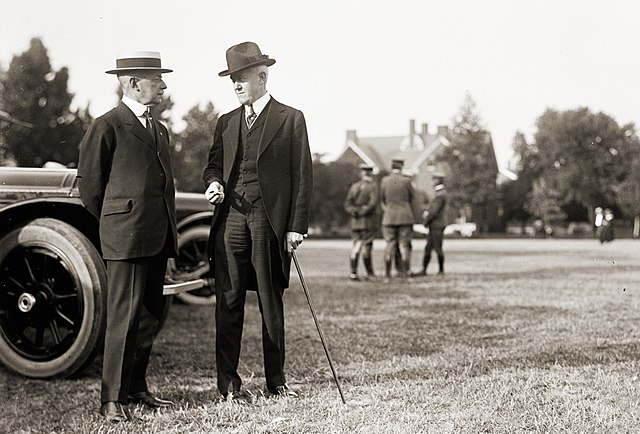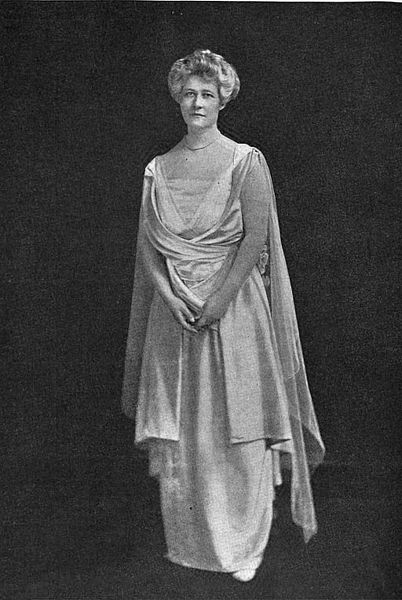Robert Lansing was an American lawyer and diplomat who served as Counselor to the State Department at the outbreak of World War I, and then as United States Secretary of State under President Woodrow Wilson from 1915 to 1920. A conservative pro-business Democrat, he was a strong advocate of democracy and of the United States' role in establishing international law. He was an avowed enemy of German autocracy and Russian Bolshevism. Before U.S. involvement in the war, Lansing vigorously advocated freedom of the seas and the rights of neutral nations. He later advocated U.S. participation in World War I, negotiated the Lansing–Ishii Agreement with Japan in 1917 and was a member of the American Commission to Negotiate Peace at Paris in 1919. However, Wilson made Colonel House his chief foreign policy advisor because Lansing privately opposed much of the Treaty of Versailles and was skeptical of the Wilsonian principle of self-determination.
Robert Lansing
Lansing's Secretary of State nomination
Lansing and Solicitor General of the United States John W. Davis in 1917
Eleanor Foster
American Commission to Negotiate Peace
The American Commission to Negotiate Peace, successor to The Inquiry, participated in the peace negotiations at the Treaty of Versailles from January 18 to December 9, 1919. Frank Lyon Polk headed the commission in late 1919. The peace conference was superseded by the Council of Ambassadors (1920–1931), which was organized to deal with various political questions regarding the implementation of provisions of the Treaty, after the end of World War I. Members of the commission appointed by President Woodrow Wilson included:
Commissioners and staff of the American Commission to Negotiate Peace in Paris on June 25, 1919 (President Wilson seated at center of front row)





